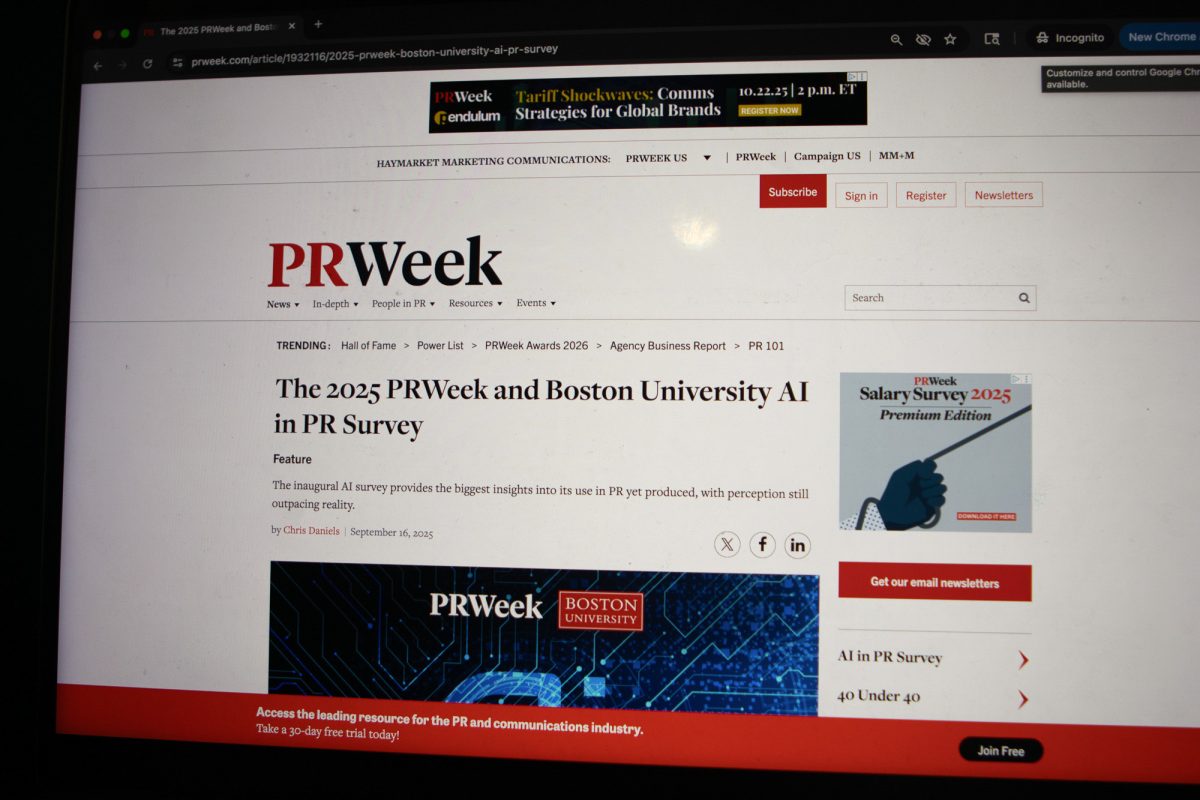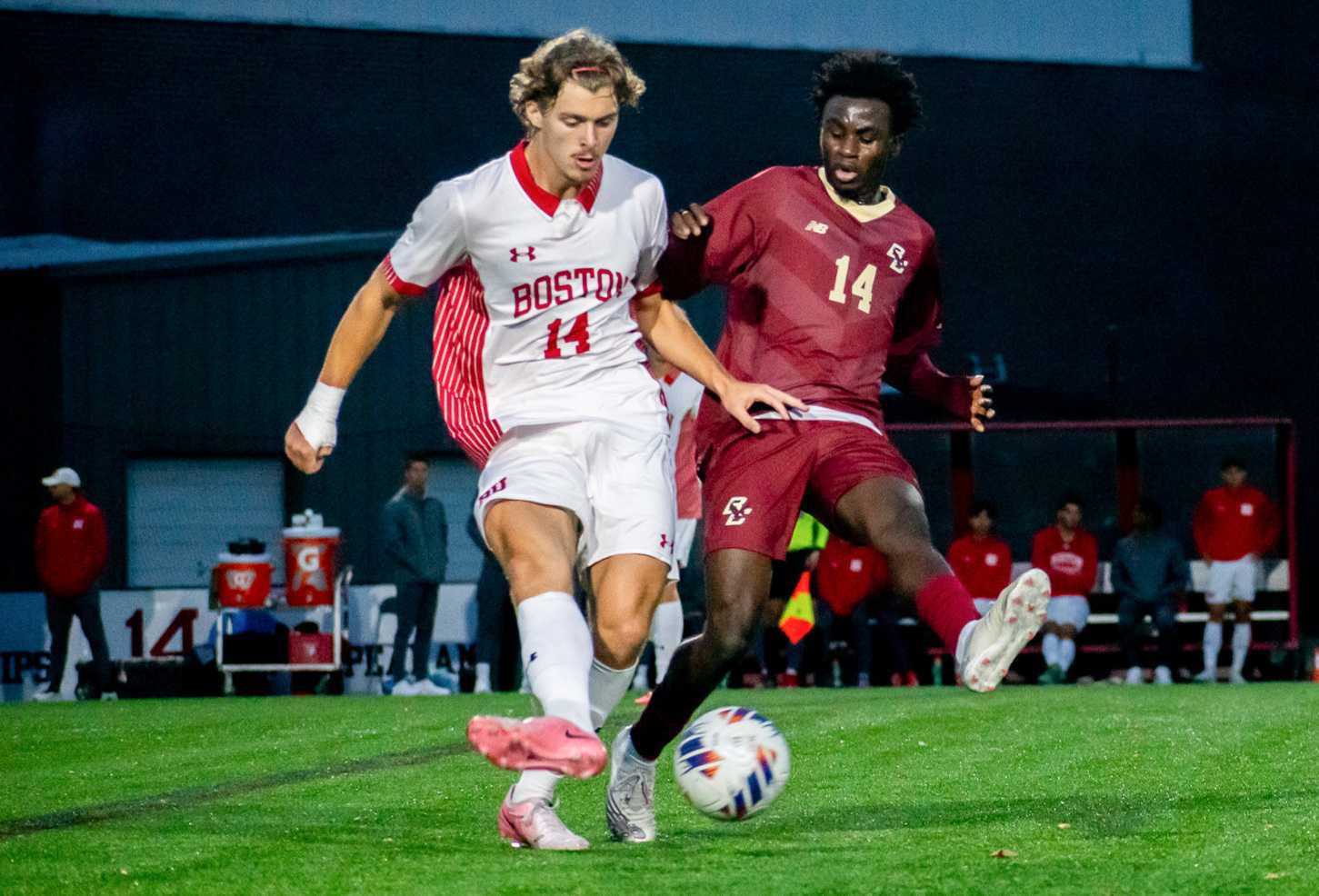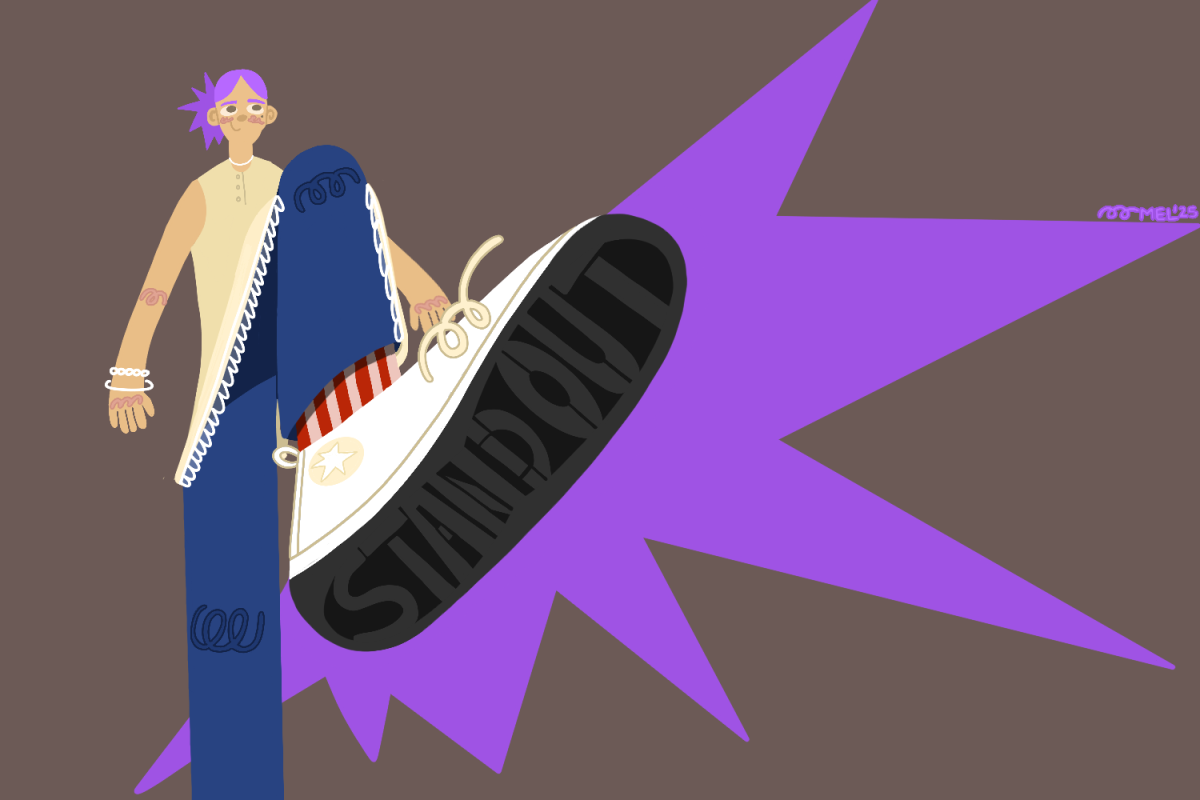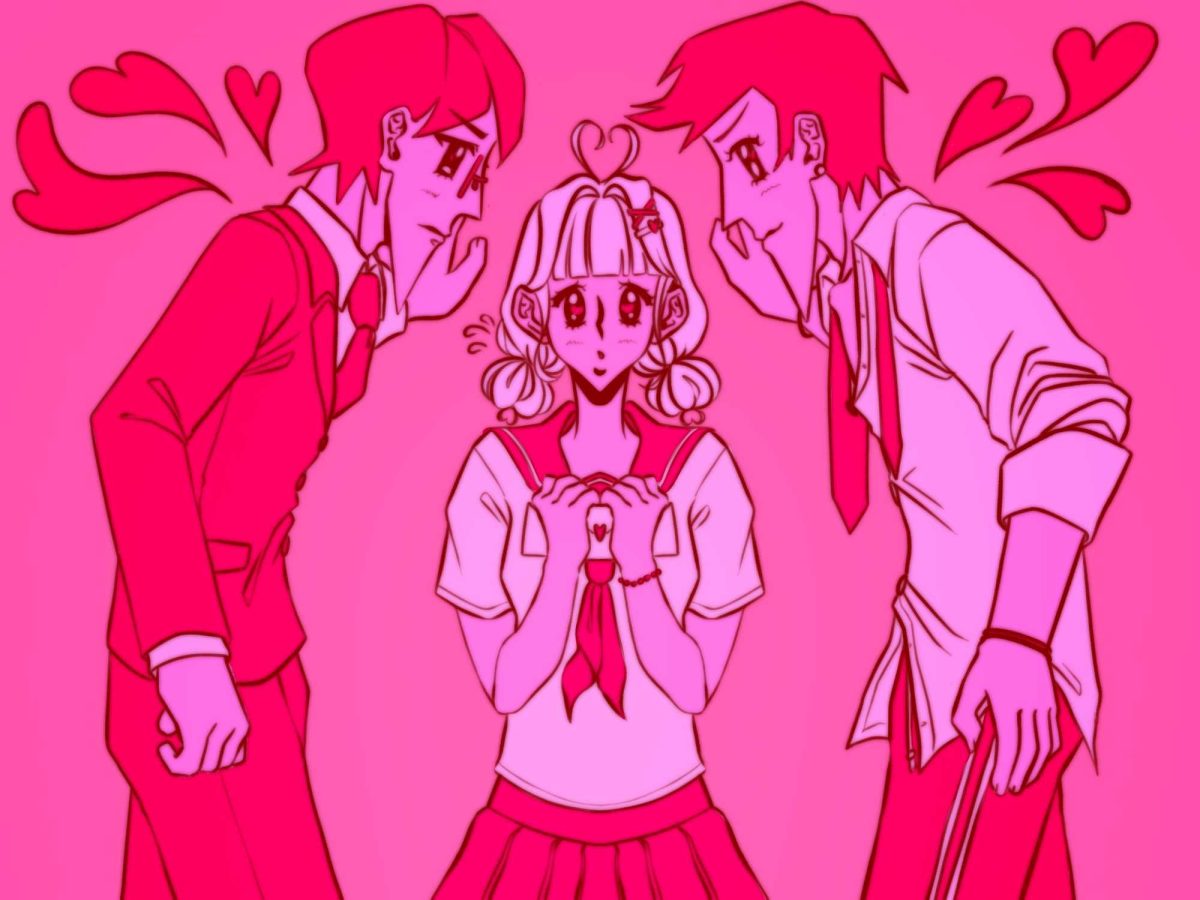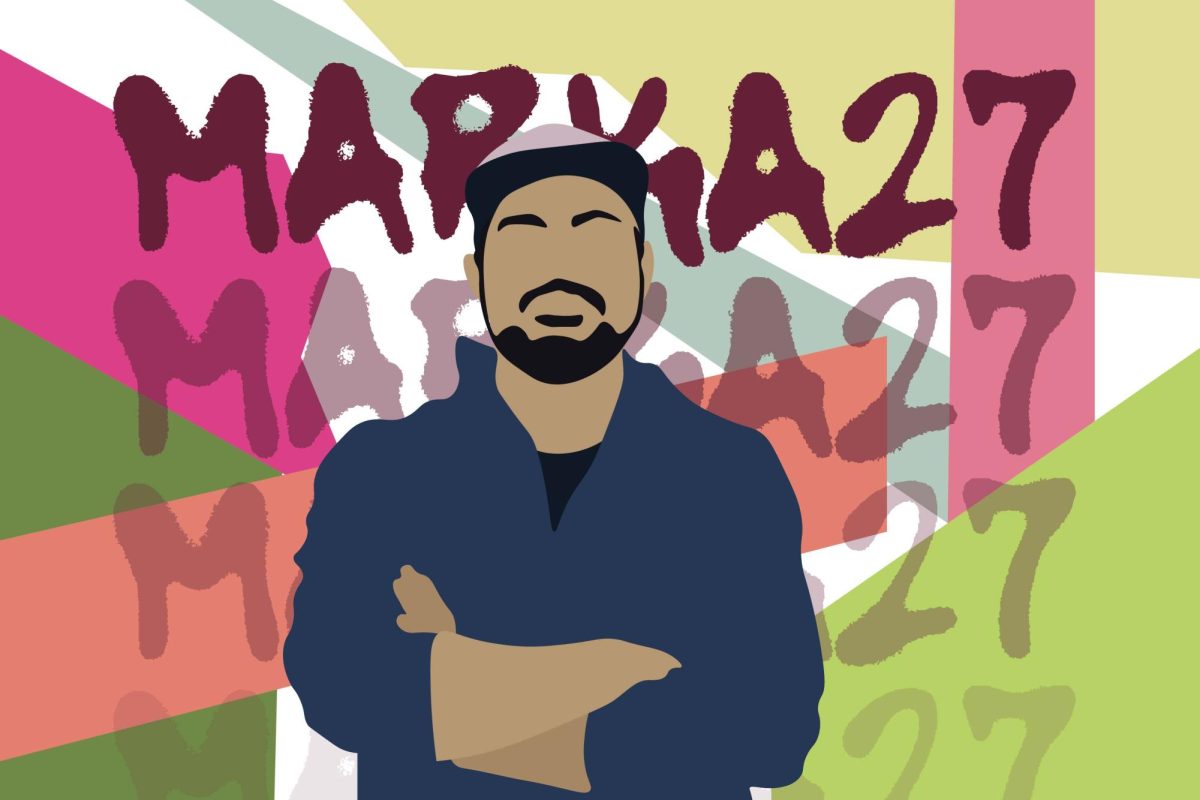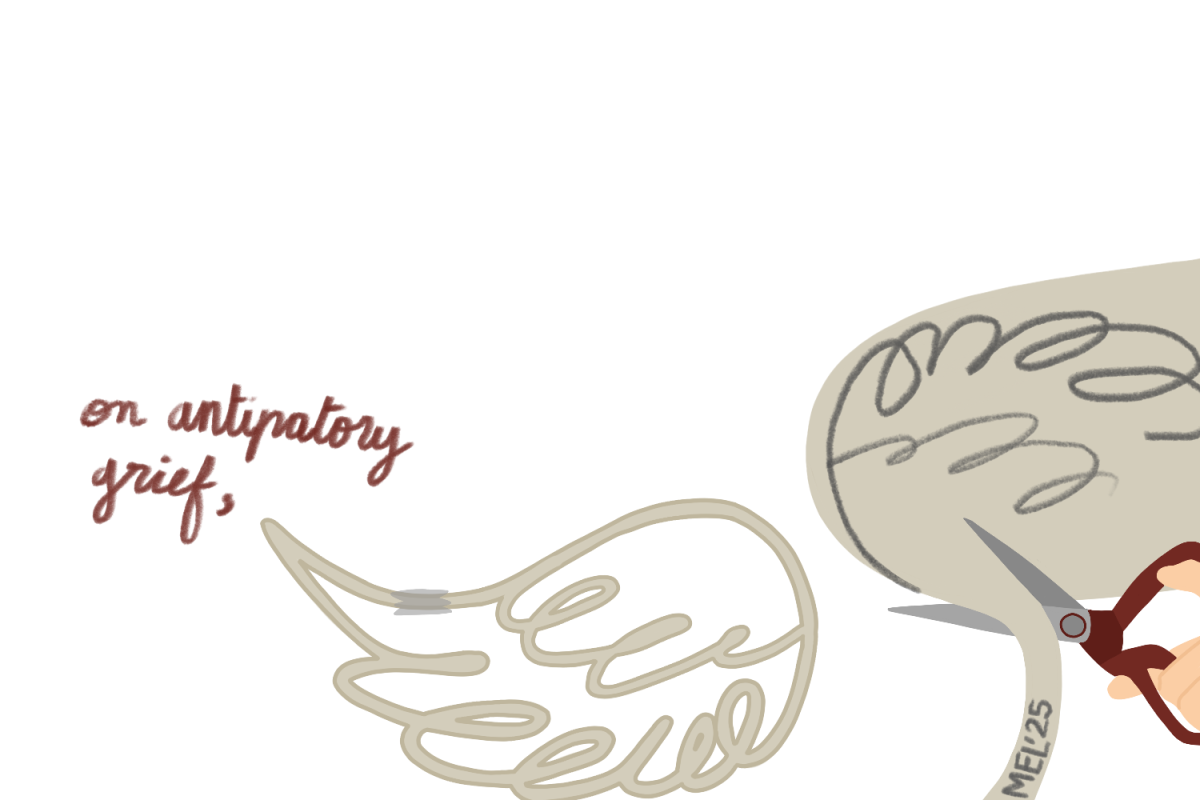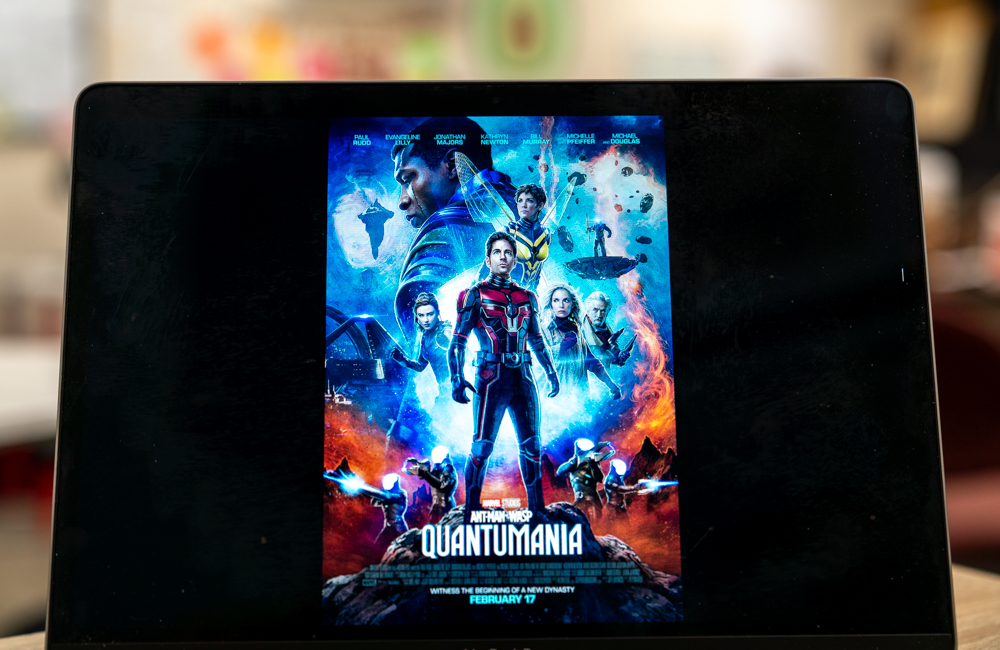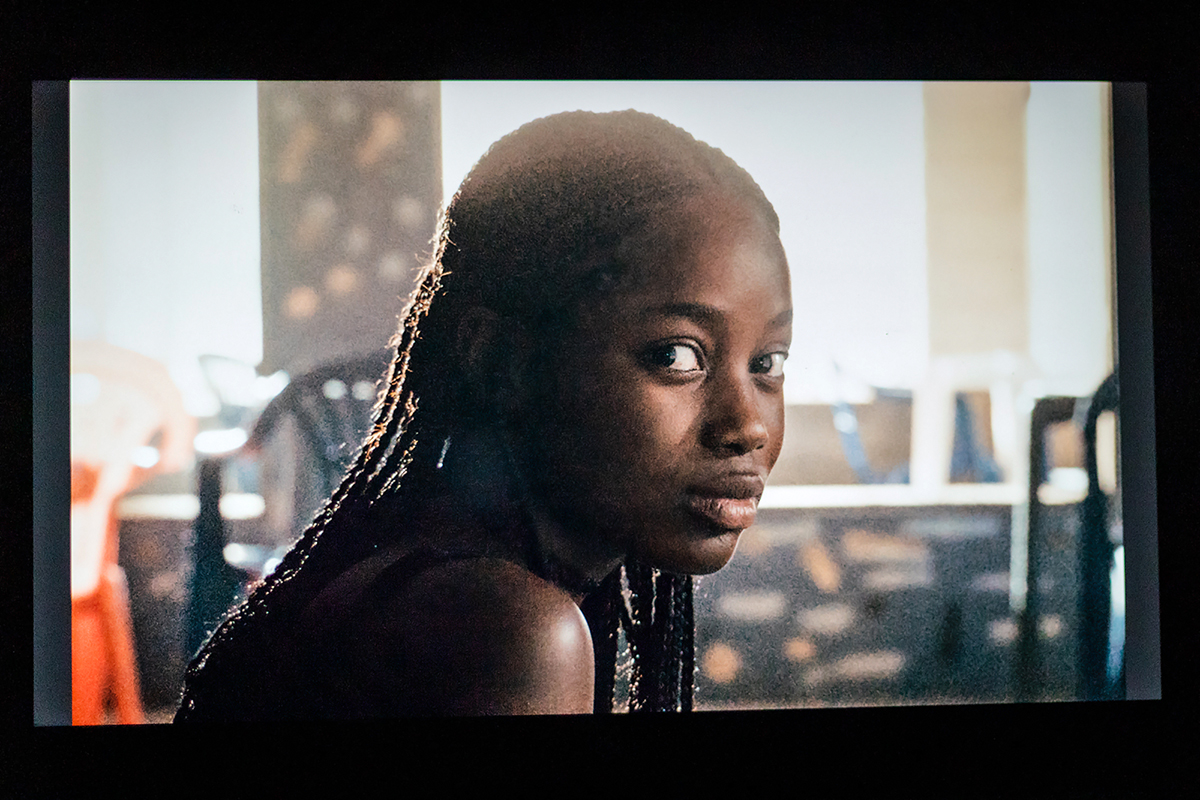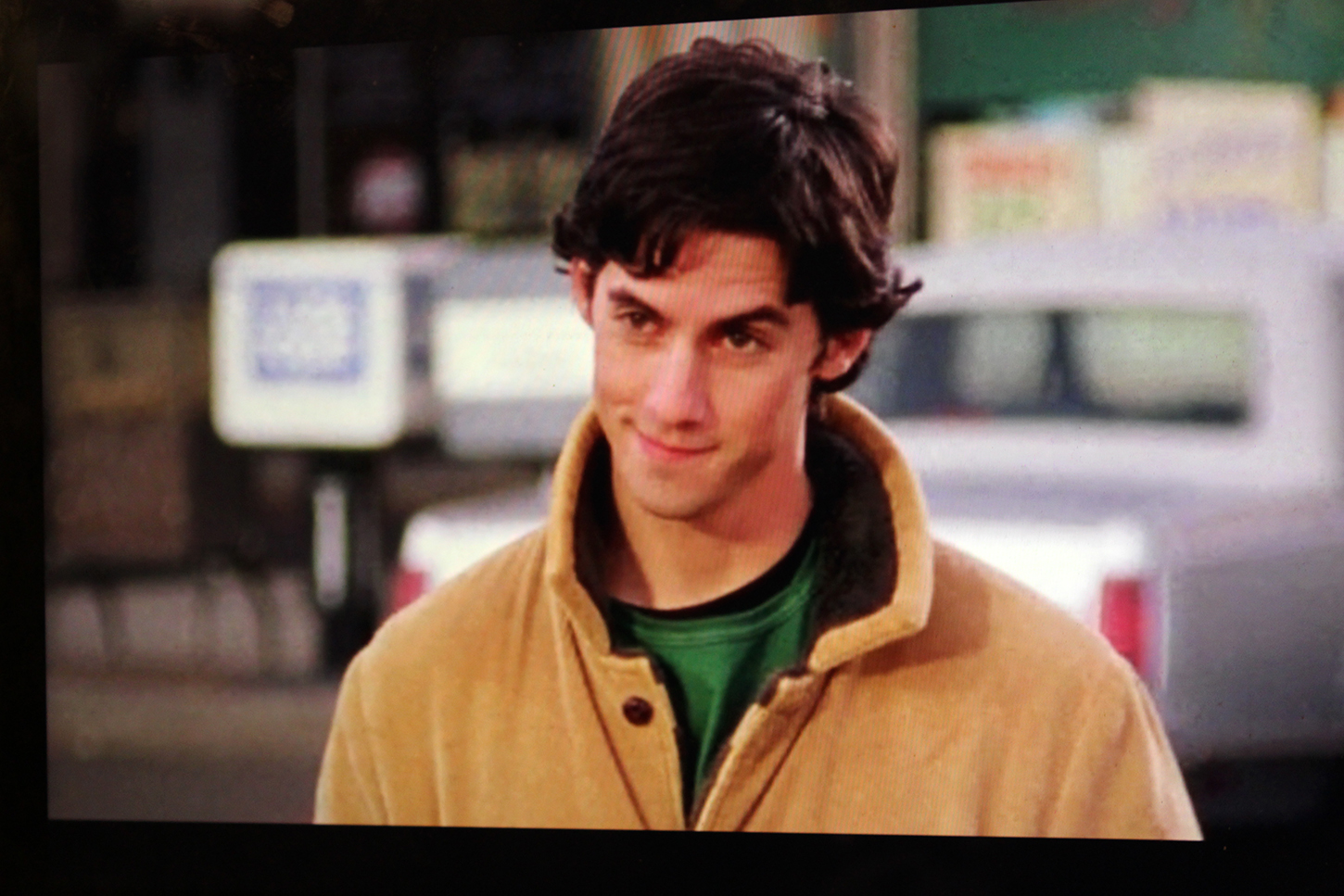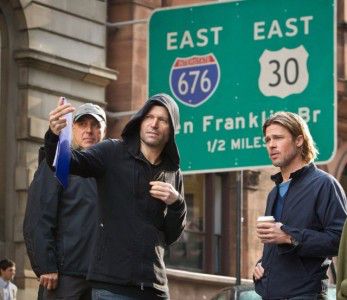
Marc Forster directs Brad Pitt in “World War Z”
Paramount Pictures’ mega-budget action tentpole, World War Z, comes out today. Starring and produced by Brad Pitt, the film is based on the popular 2006 novel of the same name.
In advance of the movie’s release, director Marc Forster spoke on the symbolism of zombies in today’s society, the film’s extensive reshoots, and more.
Forster is an Oscar-winning director behind films such as Finding Neverland, Monster’s Ball, and Stranger Than Fiction. His first foray into tent-pole action films was the disappointing Quantum of Solace, which raked in millions, despite being hailed as one of the worst Bond films by critics and fans alike.
Lucien Flores: Zombies are often used as a metaphor for problems in society. I’ve heard you say that the zombies [in World War Z] represent overpopulation and depleting resources. Could tell me more about that?
Marc Forster: I have often been fascinated by zombies because they’re, as you just mentioned, a great metaphor, going back to Romero in the 70’s where they were a take on consumerism. After reading Max’s books, it really resonated with me. We’re living in a time of change and I think every time the world’s been through such a transformation, zombies have been very, very popular.
As a child, I was fascinated with biology, with ants, fish, and flocks of birds, swarming mentality – the feeling that a [swarm] has a brain of its own. Also, as a child, I once witnessed masses of people at a soccer stadium in Europe as people were trying to leave after the game, trampling on top of each other. I sat there watching it, frightened from a child’s point of view. Realizing how scary this could be.
Population is growing and in 2050, there will be around ten billion people on the planet. So overpopulation becomes more and more of a concern with less and less resources, and if you’re looking all around in regards to politics and economics, it seems like we are all going after the last resources. There is almost a mindlessness to it and I thought that would be a great metaphor.
The human pyramid is a very frightening image and I haven’t seen it in any zombie movie and as a filmmaker you’re always trying to create something new, which in this case is a tsunami of zombies coming towards you with no way to escape them.
Lucien Flores: I noticed that you’re not using your frequent collaborator and cinematographer, Roberto Schaefer. What inspired that change for the system and do you plan to work with him again in the future?
Marc Forster: Roberto and I did lots and lots of movies together and we both thought as time went on, to mix it up a little bit. We probably will work again together. I don’t know if it’s next the film or the one after. We’re going to want to keep it open from now, but I think it was good for my cinematic language to mix it up a little bit.
Other Topics:
On World War Z’s ‘zombie rulebook:’
“We have created our own rule book with what the zombies can do and cannot do, partly based on the book and partly through zombie history. I studied all kinds of zombie movies in the 70’s to the present. You look at all these films and see what other people had as rules and what our rules are.
I knew that I wanted to set it all as very real. I didn’t want them to be superhuman and just grounded all biology. I wanted to create a feeling within the movie that this could happen in reality and thus we worked to make the film as real as possible. This reality is how I based all of my research on it when we developed the idea. I was involved in every step of the way because it was important to the foundation of my vision.”
On the greatest challenged of directing World War Z:
“Sometimes when you’re surrounded by these massive scenes and you’re involved in this incredible time pressure and money pressure, it can be a challenge to stick to your vision. Yet in the midst of all of that, you have to remind yourself that ultimately you’re the director and you have to carry this vision and make sure that that vision gets communicated to everyone at all times.
And in certain circumstances, whatever it is, in certain moments, you might lose sight, but then you always have to come back and just work with everyone on that. I’ve been lucky enough to say I’ve walked away at the end of the films I made, with the thought of: yes, my vision was there. I think that’s the most important thing.”
On his reason for choosing World War Z:
“I basically chose World War Z because I was fascinated with the idea of using zombies as a metaphor. I was attracted to the opportunity to tell a story that would be fun and entertaining for viewers and at the same time provide a potential second layer for others. I think it’s a lot of fun for everybody because everyone will have their own interpretation of the movie, for some people it will just be pure entertainment and some people will read more into it.”
On the casting process of World War Z:
“We wanted to make very authentic casting decisions, so from all the different countries Brad Pitt’s character travels to, we went to these countries and cast people from there. It’s a very international cast. And basically we brought people in – auditioned them – and I had them read the scenes and then brought them back again, then those I felt were best I proposed to my producers and the studio. But I’m really pretty pleased with all the actors we got and they all feel very authentic – very real – and if it weren’t for that part, I think, casting generally is a big part of the movie and it’s been an especially exciting process to have the opportunity to work with different actors from around the globe.”
On the film’s extensive reshoots:
“When we finished shooting, we went inside…to see what we had and we realized we could do better. We went to the studio and asked for additional photography to make the film stronger and the studio supported us entirely. So we did that and everyone has been very pleased with the outcome.”
On diverging from the book’s documentary style:
“As much as I love the book, the book didn’t really represent the standard linear narrative and for the kind of movie we wanted to make. But at the same time, like the book, I wanted to keep it very hyper-real and shoot it in a documentary kind of feel where you ultimately feel very connected to the character and feel the reality around you.”
On advice to aspiring directors:
“We all have stories to tell. I think the main thing is to find the right stories and be passionate about them and then just basically try to make them as cheap as possible. Pick up a camera and shoot because the more you shoot and the more you direct, the more you learn and the more you understand the tools of storytelling.”
I think making films is more possible these days too as people have more access to cameras and [editing software] on their laptops and it’s pretty easy to do. But I think ultimately the key is to tell stories you are really passionate about and can identify with. I think the more you can identify with a story, the more success you will have because so much more will ring true.”
On going back and forth between indie and big-budget movies:
“ I conscientiously go back and forth between bigger movies and smaller movies because it’s a nice balance. Both have their merits and both have their challenges. I enjoy them both.”







